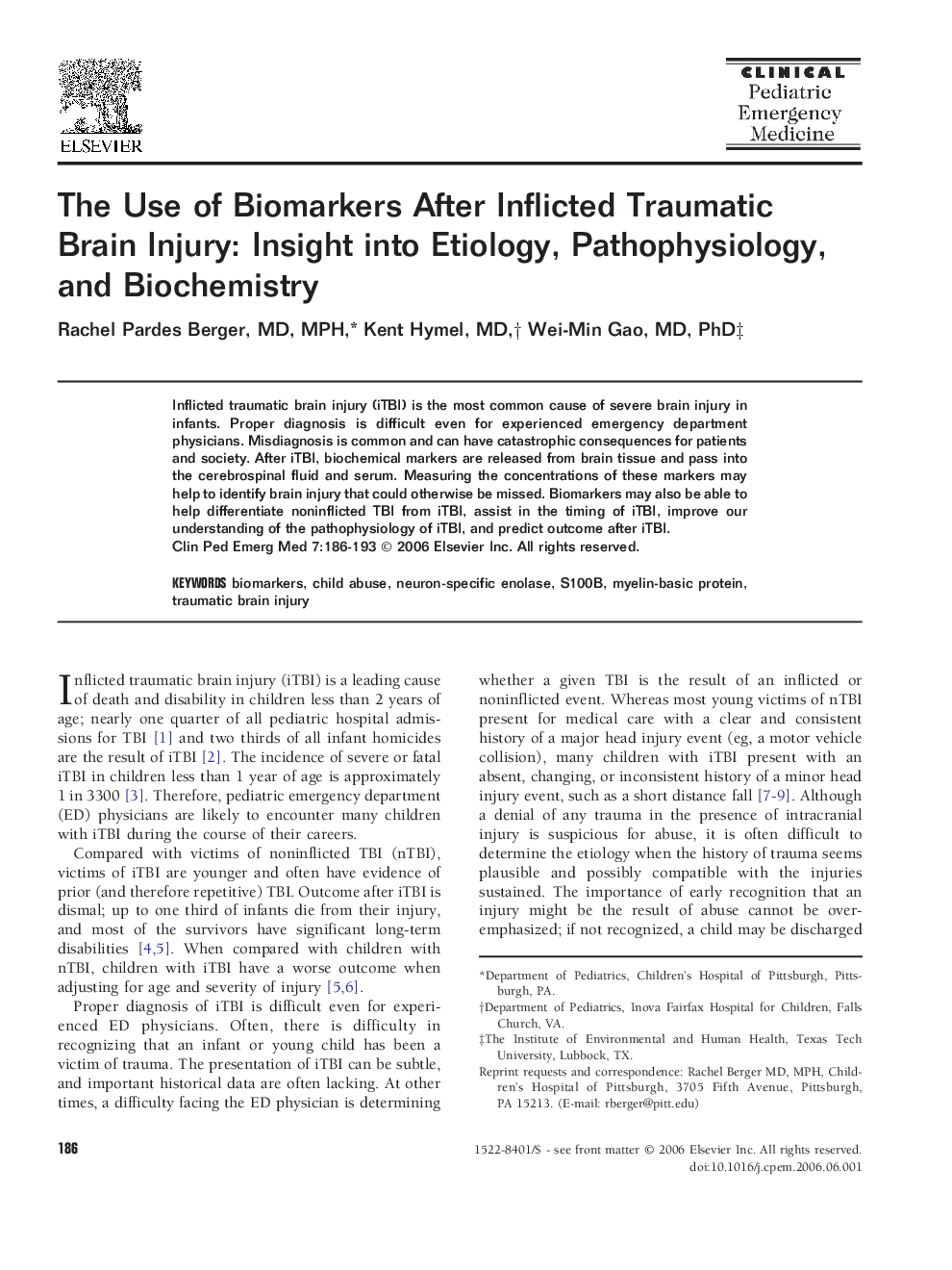| Article ID | Journal | Published Year | Pages | File Type |
|---|---|---|---|---|
| 3236247 | Clinical Pediatric Emergency Medicine | 2006 | 8 Pages |
Abstract
Inflicted traumatic brain injury (iTBI) is the most common cause of severe brain injury in infants. Proper diagnosis is difficult even for experienced emergency department physicians. Misdiagnosis is common and can have catastrophic consequences for patients and society. After iTBI, biochemical markers are released from brain tissue and pass into the cerebrospinal fluid and serum. Measuring the concentrations of these markers may help to identify brain injury that could otherwise be missed. Biomarkers may also be able to help differentiate noninflicted TBI from iTBI, assist in the timing of iTBI, improve our understanding of the pathophysiology of iTBI, and predict outcome after iTBI.
Keywords
Related Topics
Health Sciences
Medicine and Dentistry
Emergency Medicine
Authors
Rachel Pardes Berger, Kent Hymel, Wei-Min Gao,
